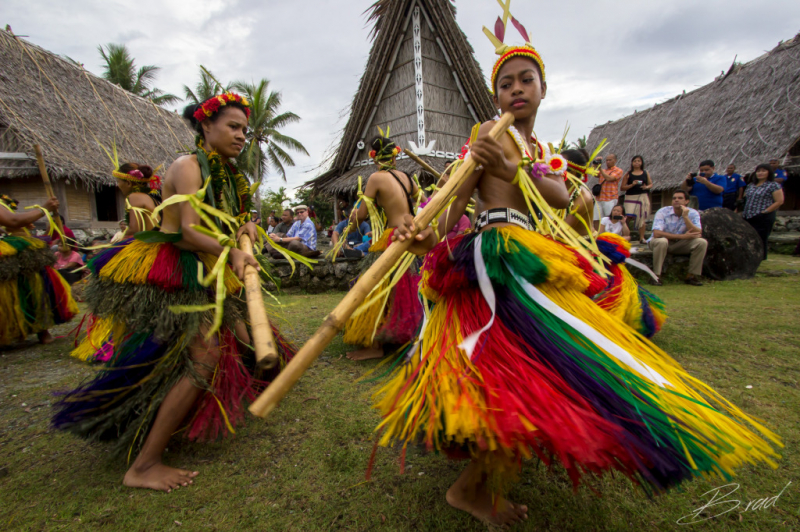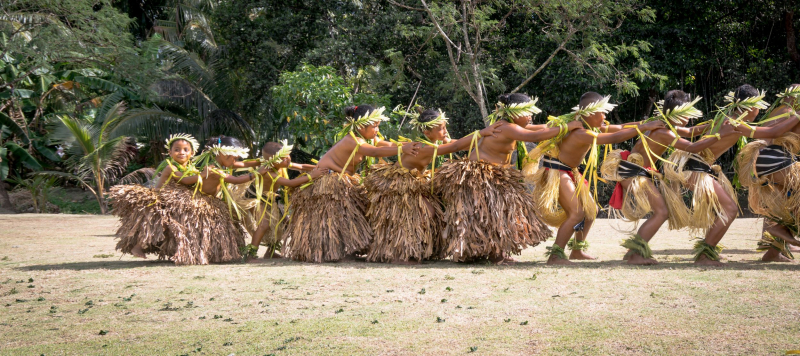Marriage
The formality of marriage in Micronesia varied. Marriages were celebrated in Palau and Yap by the bride's family receiving official payments from the groom's family. Although persons of high rank may have had public ceremonies with some exchange of goods, marriages were typically relatively loose and informal in the region from the central Carolinian atolls to the Marshall Islands. Significant premarital and extramarital sex was traditionally expected in this region.
For the average person, marriage meant simply cohabiting openly and being referred to as spouses in public. It appears that the Gilberts had a more formalized marriage and more control over premarital sex. Although it was not very common, polygyny, a type of marriage in which wives share a husband, was generally accepted to some extent in Micronesian societies. It was occasionally only allowed for chiefs and was most likely to involve powerful men.
Birth order has always played a significant role in Micronesian society. Ordinarily, the eldest child represents the family or lineage in public, is anticipated to succeed to any lineal political offices, and controls the use of lineage or family lands. In general, younger siblings treat older siblings with formal deference. In some areas of Micronesia, possibly most strongly in the central Carolines from Chuuk through the atolls to the west, brother-sister avoidance connections are highly developed.
In this region, it was customary for siblings to refrain from speaking to one another, and sisters were required to display other forms of respect for their brothers, such as crouching while they were together. A sister's bond with her brother's next older sibling existed in Pohnpei, but it did not have the same impact on relationships between other siblings.
Similar to other regions of Oceania, individuals frequently adopt their relatives' children. The practice served many purposes, including providing a home for orphaned or unmarried children, relieving young adults of the responsibility of child care while providing older people with children to assist them with small tasks, ensuring a more equitable distribution of land rights, and providing heirs who could be trained in specialized knowledge when a natural heir was unavailable or unsatisfactory.









